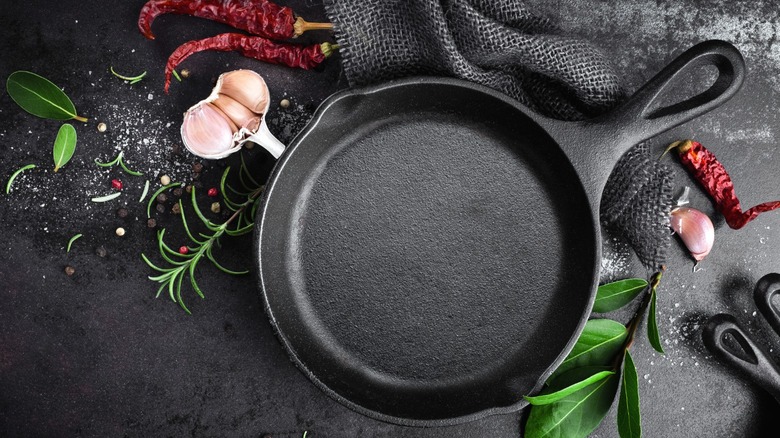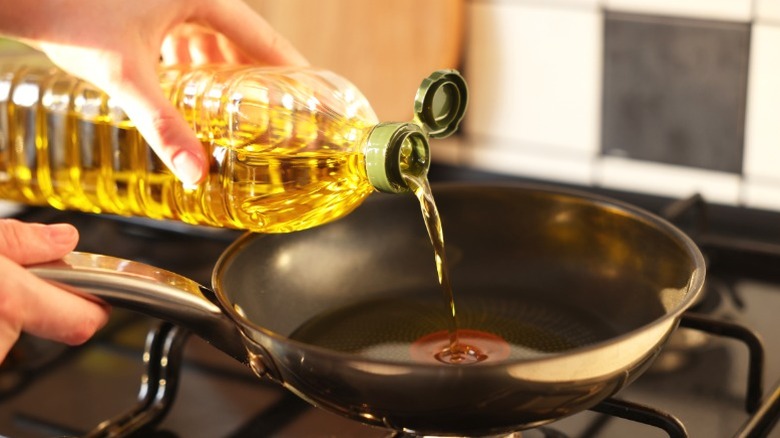The Type Of Fat You Should Avoid Using To Season Your Cast Iron Pans
Some of you may think cast iron pans are more trouble than they're worth. If you've got a perfectly good nonstick skillet, for instance, why would you want a skillet that can rust? But not only is it ideal for certain foods that require a good Maillard-reaction crust — steak, for instance, is much better in a cast iron skillet than a nonstick one — it's not really as much work as it sounds.
Just a thin layer of oil baked on, or "seasoning," is enough to keep it healthy and rust-free for a good long while. But that doesn't mean you can't make mistakes when you season, which is why we asked Jordan de Geus, founder of Cookware Care, to clarify. He tells us that you'll want to pick the right oil, and that means setting aside saturated fats — not for health reasons, but because they're just not as good at it.
"It's an old myth to season with a saturated fat (bacon fat, for example)," de Geus says. "But from a chemistry perspective, saturated fats by nature don't polymerize (creating the seasoning layer)." Saturated fats are applicable to an extent, but as de Geus explains, "They work because they do contain some unsaturated fats, which is what is actually polymerizing into a durable layer." Does this pose any threat to your cast iron pan? "No, they won't damage the cookware, [but] they just aren't efficient at creating the surface we are looking for," he says.
Use unsaturated fats like vegetable oil to season your pan
So you should be using unsaturated fats for your cast iron pan seasoning. But what kind of fats, specifically, should you use? Jordan de Geus is here to help once again. "In our opinion, you want high smoke point oils that are high in unsaturated fats, specifically polyunsaturated fat," says, and cites expeller-pressed vegetable oil and cold pressed grapeseed oil as being particularly useful. "Polyunsaturated fat, in particular, from a chemistry standpoint, [breaks] down easier and quicker than monounsaturated fat [which] effectively means they polymerize faster and more efficiently than monounsaturated fat, for example," notes de Geus.
Oils with high smoke points can withstand wear and tear without burning, and as de Geus warns, low smoke points can mean doom for cast iron pans. "The chemical bonds that are occurring with lower smoke point oils break down at a lower 'hotter' temperature than high smoke point oils," he explains. That means you'll want to leave your olive oil on the shelf for this purpose. Instead, rub vegetable or grapeseed oil thoroughly into your cast iron, then place it in a 350 degree oven for a half-hour. A few more rounds of that, and you'll have a nicely seasoned cast iron pan, perfect for making steak, hash browns (like Bette Davis' favorite red flannel hash), or this chili cornbread skillet pie.

